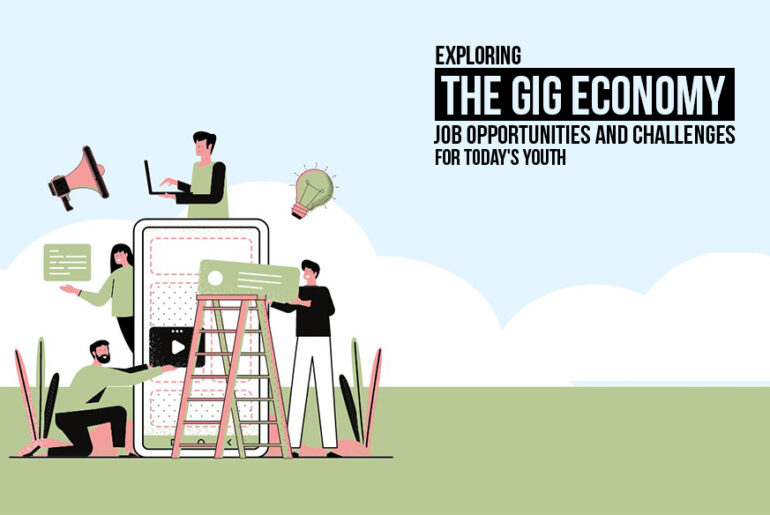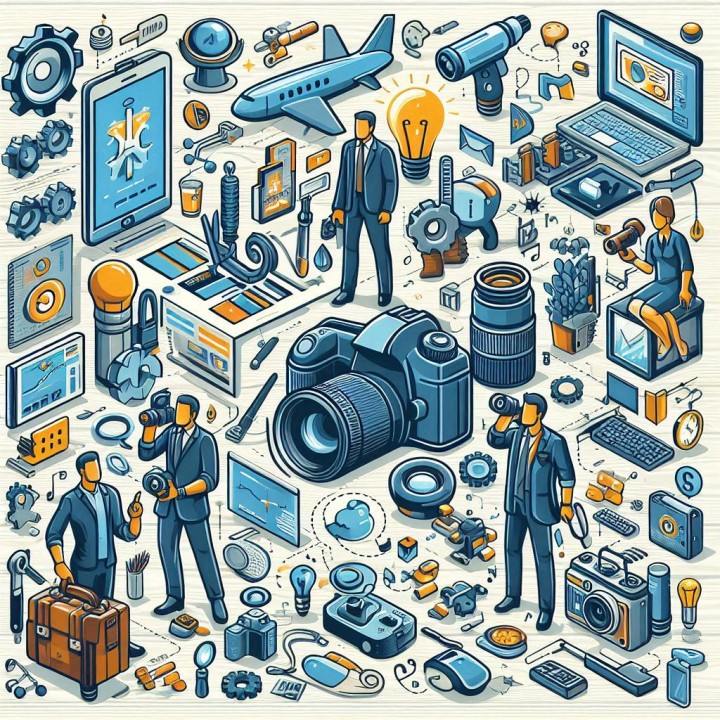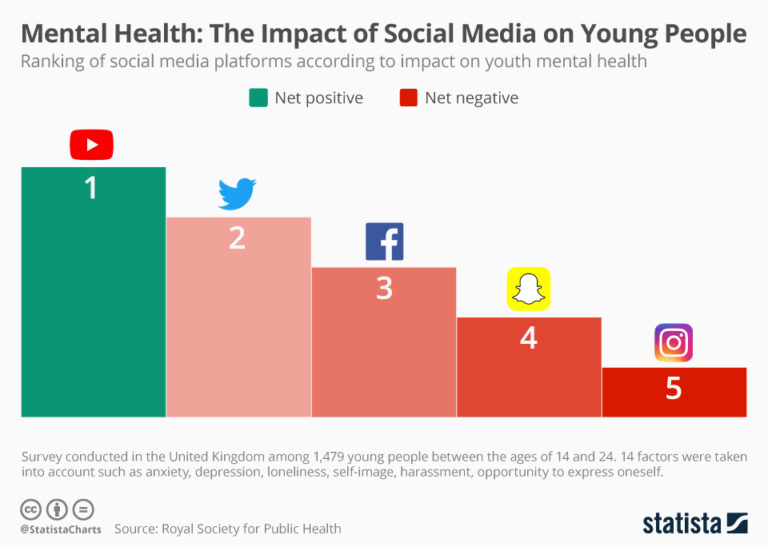Exploring the Gig Economy: Opportunities And Challenges
The gig economy offers flexible work opportunities but also presents significant challenges. Workers benefit from autonomy, yet face job insecurity.
The gig economy has rapidly transformed the traditional employment landscape. It allows individuals to take on short-term, flexible jobs, often through digital platforms like Uber, Upwork, and Fiverr. This model suits those seeking autonomy and varied work experiences. However, gig workers often lack benefits and face inconsistent income.
The appeal of flexible hours and diverse projects must be weighed against the instability and lack of protections. Understanding these opportunities and challenges is crucial for anyone considering joining the gig economy. As this trend continues to grow, its impact on the workforce and economy will become increasingly significant.
Introduction To The Gig Economy
The gig economy is changing how people work. It offers new ways to earn money. Many people now choose gigs instead of full-time jobs. This section explores the gig economy’s opportunities and challenges.
Definition And Scope
The gig economy includes all short-term, flexible jobs. These jobs are often called gigs. Workers are paid per task or project. They are not permanent employees.
Gigs can be found in many industries. Examples include ride-sharing, freelance writing, and graphic design. The gig economy also includes online platforms like Uber and Fiverr.
People choose gigs for many reasons. Some want extra income. Others seek flexible hours. Gigs can also help people gain new skills.
Historical Context
The gig economy is not new. Short-term work has existed for centuries. However, technology has changed it greatly.
In the past, gig work was often local. People found gigs through personal connections. Today, the internet allows people to find gigs worldwide. Online platforms make it easier to match workers with jobs.
The gig economy grew during the 2008 financial crisis. Many lost their jobs and needed new ways to earn money. Since then, the gig economy has continued to grow. More people now see gigs as a viable career option.
| Key Aspects | Examples |
|---|---|
| Industries | Ride-sharing, Freelance writing, Graphic design |
| Platforms | Uber, Fiverr, Upwork |
| Reasons for Gigs | Extra income, Flexible hours, Skill development |

Credit: www.linkedin.com
Key Opportunities
The gig economy is reshaping how people work. Many people find new opportunities in this fast-growing space. Let’s dive into the key opportunities available in the gig economy.
Flexible Work Hours
One of the biggest advantages is flexible work hours. Workers can choose their own schedules. This flexibility allows for a better work-life balance. Parents can work while their kids are at school. Night owls can work late hours. This freedom is a game-changer for many people.
Diverse Income Streams
The gig economy offers diverse income streams. People can take on multiple jobs. This variety helps in earning more money. For example, you can drive for a ride-sharing service in the morning. Then, you can freelance as a graphic designer in the evening. This diversification reduces financial risk.
| Job Type | Example |
|---|---|
| Ride-Sharing | Uber, Lyft |
| Freelance | Graphic Design, Writing |
| Task-Based Work | TaskRabbit, Fiverr |
- Flexible Work Hours: Choose your own schedule.
- Diverse Income Streams: Multiple job opportunities.
Popular Gig Platforms
The gig economy has transformed how people work and earn. Various platforms offer diverse opportunities for freelancers and gig workers. These platforms cater to different skills and services, providing flexible work options. This section delves into some popular gig platforms.
Freelance Marketplaces
Freelance marketplaces connect clients with freelancers for various projects. These platforms cover a wide range of skills, including writing, graphic design, and programming.
- Upwork: Upwork allows freelancers to bid on projects. Clients post jobs, and freelancers submit proposals.
- Fiverr: Fiverr offers services starting at $5. Freelancers create gigs, and clients purchase them.
- Freelancer: Freelancer connects businesses with freelancers. Projects range from short-term tasks to long-term contracts.
Freelance marketplaces are ideal for those with specific skills. They provide a platform to showcase your talents and connect with clients globally.
Rideshare And Delivery Services
Rideshare and delivery services offer flexible work opportunities. These platforms are perfect for those with a vehicle and a willingness to drive.
- Uber: Uber connects drivers with passengers. It’s a popular platform for ridesharing services.
- Lyft: Lyft offers similar services to Uber. It’s known for its driver-friendly policies.
- DoorDash: DoorDash connects drivers with restaurants for food delivery. Drivers pick up and deliver orders to customers.
- Postmates: Postmates delivers various items, including food and groceries. Drivers have the flexibility to deliver different types of goods.
Rideshare and delivery services provide a flexible income source. They are suitable for those who enjoy driving and meeting new people.
Financial Benefits
The gig economy offers numerous financial benefits for freelancers and independent workers. These benefits make it an attractive option for many. Let’s explore the financial advantages that come with gig work.
Higher Earning Potential
Gig workers can enjoy a higher earning potential. They have the freedom to set their own rates. This allows them to earn more than traditional jobs. Skilled professionals can charge premium prices for their services. This flexibility can lead to increased income over time.
Here are some ways gig workers can increase their earnings:
- Offering specialized services
- Working with multiple clients
- Taking on high-demand projects
By diversifying their income streams, gig workers can maximize their earnings.
Tax Advantages
Independent workers in the gig economy can benefit from various tax advantages. These advantages can help reduce their taxable income. Here are some common tax deductions available to gig workers:
| Expense | Description |
|---|---|
| Home Office | Deduct a portion of home expenses for business use. |
| Equipment | Write off the cost of tools and technology. |
| Travel | Deduct expenses for business-related travel. |
| Education | Write off the cost of job-related courses and materials. |
These tax advantages can lead to significant savings. By keeping good records, gig workers can maximize their deductions.
Challenges Faced By Gig Workers
Gig workers enjoy freedom and flexibility. But they also face many challenges. These challenges can affect their income and quality of life.
Job Security Issues
Gig workers often lack job security. They don’t have stable jobs. Work can be unpredictable. Some months are busy, others are slow. This inconsistency makes planning hard.
Companies can easily end contracts. Gig workers have no protection. They can lose their income suddenly. This creates stress and financial worries.
- Unstable income
- Lack of protection
- Sudden contract termination
Lack Of Benefits
Traditional jobs offer benefits. These include health insurance, retirement plans, and paid leave. Gig workers usually don’t get these benefits. They have to pay for their own insurance. They also miss out on paid time off.
This lack of benefits can be costly. Gig workers must save more for emergencies. They also need to plan for retirement on their own.
| Traditional Job Benefits | Gig Worker Situation |
|---|---|
| Health Insurance | Must buy own insurance |
| Retirement Plans | Save for retirement alone |
| Paid Leave | Work without paid leave |

Credit: www.6sigmastudy.com
Impact On Traditional Employment
The gig economy is transforming traditional employment in many ways. It’s changing how people work and how companies hire. This shift affects job security, benefits, and work-life balance. Let’s explore how the gig economy impacts traditional employment.
Shift In Job Market
The gig economy creates a significant shift in the job market. Permanent full-time jobs are decreasing. Temporary and freelance jobs are increasing. This change offers more flexibility for workers. They can choose projects that fit their skills. Companies save money on benefits and long-term commitments.
Here’s a comparison of traditional employment and gig work:
| Traditional Employment | Gig Work |
|---|---|
| Full-time positions | Freelance/Temporary |
| Fixed salary | Variable income |
| Job security | Flexible projects |
| Company benefits | No benefits |
Changing Employer-employee Dynamics
The gig economy is also changing employer-employee dynamics. In traditional jobs, employers and employees build long-term relationships. In gig work, these relationships are short-term. Trust and loyalty become less important.
Here are some key changes:
- Short-term contracts replace long-term employment.
- Project-based work replaces daily tasks.
- Remote work becomes more common.
- Performance-based pay replaces fixed salaries.
Employers need to adapt to these changes. They must manage a rotating workforce. Employees must stay competitive and continuously upgrade their skills.
Regulatory And Legal Aspects
The gig economy offers flexibility but also faces many legal challenges. Understanding regulations is key for both workers and companies. This section explores the regulatory and legal aspects of the gig economy.
Worker Classification
Worker classification is a major issue in the gig economy. Companies often classify gig workers as independent contractors. This classification has many implications for taxes and benefits.
Classifying workers affects their rights and protections. Independent contractors usually do not get health insurance or paid leave. Employees, on the other hand, receive these benefits.
Misclassification can lead to legal disputes. Courts decide if workers are contractors or employees based on various tests.
Labor Laws
Labor laws vary by country and state. These laws aim to protect workers’ rights and ensure fair treatment.
Some key aspects of labor laws include:
- Minimum wage requirements
- Overtime pay regulations
- Working hours limitations
- Health and safety standards
Gig workers often lack protections under traditional labor laws. This creates a gap in safety and benefits.
New regulations are emerging to address these gaps. Some regions now have laws specifically for gig workers.
| Aspect | Independent Contractors | Employees |
|---|---|---|
| Health Insurance | Not provided | Provided |
| Paid Leave | Not provided | Provided |
| Minimum Wage | Not guaranteed | Guaranteed |
| Overtime Pay | Not required | Required |
Future Of The Gig Economy
The gig economy is transforming rapidly. This change brings new opportunities and challenges. The future of the gig economy looks promising with technological advancements. Market trends are also evolving to adapt to this new work style.
Technological Advancements
Technology is driving the gig economy forward. Artificial intelligence (AI) and machine learning are making tasks easier. They help match workers with gigs more efficiently.
Mobile apps and platforms are also evolving. They offer better interfaces and user experiences. Workers can find jobs faster and easier now.
Blockchain technology is another game-changer. It ensures secure and transparent transactions. Freelancers can get paid instantly and safely.
Here are some key technological advancements:
- Artificial Intelligence
- Machine Learning
- Mobile Apps
- Blockchain Technology
Evolving Market Trends
The market trends are shifting. Flexible work hours are becoming more popular. People prefer to work on their own terms. This shift is creating more gig opportunities.
Remote work is another growing trend. Companies are hiring freelancers from around the world. This trend offers workers more job options.
Skills-based hiring is also on the rise. Companies are focusing on specific skills rather than degrees. This change benefits skilled freelancers.
Below is a table highlighting evolving market trends:
| Trend | Description |
|---|---|
| Flexible Work Hours | Workers choose their own schedules |
| Remote Work | Jobs from anywhere in the world |
| Skills-Based Hiring | Focus on skills, not degrees |
The gig economy is evolving. New trends and technologies are shaping its future. Stay updated to make the most of these opportunities.
Tips For Success
Navigating the gig economy can be thrilling and rewarding. To thrive, you need certain skills and strategies. Here are key tips to help you succeed.
Building A Strong Portfolio
A strong portfolio showcases your skills. It’s a visual resume. Include your best work. Make sure it highlights your talents. Use clear and high-quality images.
Clients need proof of your abilities. Include testimonials if possible. They build trust. You can also add case studies. They show how you solve problems.
Keep your portfolio updated. Add new work regularly. This shows growth and consistency. An updated portfolio attracts more clients.
Effective Time Management
Time management is crucial in the gig economy. You control your schedule. Use a planner or digital calendar. This helps you stay organized.
Break tasks into smaller steps. This makes them easier to handle. Set clear deadlines for each step. Stick to your plan.
Avoid distractions. Create a dedicated workspace. This boosts focus and productivity. Take regular breaks. They refresh your mind and body.
Consider using tools like time trackers. They help you monitor your work hours. This ensures you use your time wisely.
| Tip | Description |
|---|---|
| Portfolio | Showcase your best work and update it regularly. |
| Time Management | Use planners, break tasks, and avoid distractions. |

Credit: www.re-thinkingthefuture.com
Conclusion
The gig economy offers flexibility and diverse opportunities. Yet, it also presents significant challenges like job instability and lack of benefits. Balancing these aspects is crucial for success. Embracing continuous learning and adaptability can help navigate this evolving landscape. Stay informed to make the most of gig economy opportunities.







